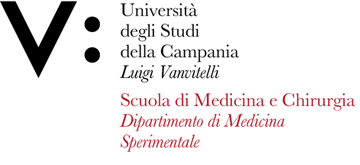Alessandro FEOLA
Insegnamento di MEDICINA LEGALE
Corso di laurea in IGIENE DENTALE (ABILITANTE ALLA PROFESSIONE SANITARIA DI IGIENISTA DENTALE)
SSD: MED/43
CFU: 2,00
ORE PER UNITÀ DIDATTICA: 20,00
Periodo di Erogazione: Secondo Semestre
Italiano
| Lingua di insegnamento | Italiano |
| Contenuti | Lo studente dovrà iniziare l'apprendimento da nozione generali di diritto penale e di medicina legale, onde inquadrare gli specifici argomenti nell'ambito del futuro esercizio professionale. |
| Testi di riferimento | "Medicina legale", Idelson-Gnocchi Editore, Napoli, 2019. |
| Obiettivi formativi | Lo studente dovrà acquisire conoscenza delle principali norme etico-deontologiche e legali alla base di un coretto svolgimento dell’attività professionale, con particolare riferimento agli obblighi nei confronti dell’assistito, dell’amministrazione di appartenenza e dell’autorità giudiziaria. Dovrà inoltre acquisire le conoscenze di base nell’ambito della Medicina Legale, inerenti la psicopatologia forense e le altre problematiche di più frequente riscontro nell’ambito della pratica professionale. |
| Prerequisiti | Conoscenze di base di biologia e di diritto. |
| Metodologie didattiche | Lezioni frontali; eventuale didattica integrativa. |
| Metodi di valutazione | Esame orale, in cui lo studente vedrà vagliata anche la capacità di sintesi, qualità dell’organizzazione del discorso e dell’esposizione. |
| Altre informazioni | Slides del corso eventualmente a disposizione. |
| Programma del corso | - Il dovere della riservatezza ed il segreto professionale; |
English
| Teaching language | Italian |
| Contents | The learning goals of this course include the knowledge of: - legal aspects and ethics of the profession, - penal and civil principles of professional responsibility, - professional duties and obligations, - patient safety and clinical risk management, - social medicine and forensic pathology. |
| Textbook and course materials | Silingardi E. Medicina Legale per i corsi di laurea ad orientamento giuridico e triennali. Idelson-Gnocchi, Napoli, 2023. |
| Course objectives | Main goals are to provide: 1) basic elements of ethics and deontology, legal medicine, professional responsibility, useful for the activities related to the legal profession; 2) methodology for the assessment of the causal relationship, 3) to show features of main injuries due to blunt trauma, sharp objects and firearms, 4) principles of social medicine with regard to invalidity and occupational diseases. After attending the lectures, students will understand how to discuss issues of medical ethics, how to assess the death, how to do an external examination of a cadaver differentiating between the main types of deaths (natural and violent) and injuries due to blunt trauma, electricity, firearms, knife or sharp objects. |
| Prerequisites | In order to attend the course proficiently, the students will need to have a well- established background in Anatomy, Physiology, Pathology, as specifically indicated by the course legislation. |
| Teaching methods | Lectures supported by presentation of slides in Power Point. Representative case studies and key topics will be also supported by discussion and critical reading of the most recent reviews in the field. |
| Evaluation methods | oral exams. The verification of the learning mode is mainly via oral examination. The oral exam covers all the aspects of legal medicine and forensic pathology. |
| Other information | Active discussion of the cases presented during the lectures is strongly recommended. |
| Course Syllabus | Legal and deontological aspects and ethics of the profession. Penal and civil principles of professional responsibility. Professional duties and obligations. The Code of Ethics. The professional secret and the privacy. The medical certificate and medical records. Communication to Judicial Authority: reporting a crime. Patient safety and good clinical practice. Adverse events and incident reporting. Clinical risk management. |








